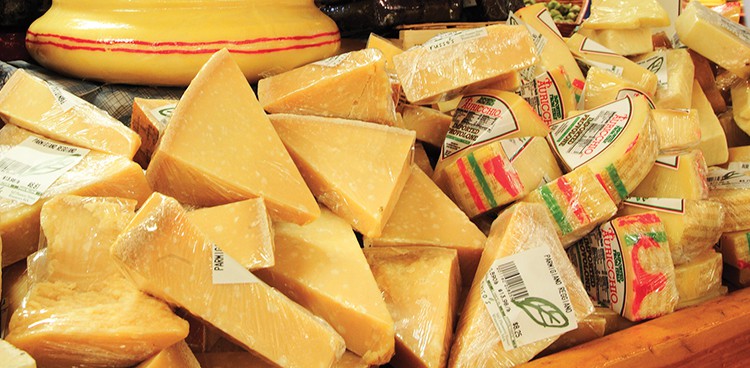
Most of us don’t need much convincing to eat more cheese, but a recent study shows that consuming regular-fat curds and other dairy products can be beneficial to our health.
Researchers at Food for Health Ireland at University College Dublin looked at the individual health impacts of dairy items—including milk, cheese, yogurt, cream, and butter—among 1,500 healthy Irish people ranging from 18 to 90 years old. The participants kept food diaries for four days. Once analyzed, academics concluded that cheese isn’t necessarily to blame for higher body fat and LDL (a.k.a. “bad” cholesterol) levels.
In addition, they discovered that higher levels of full-fat dairy consumption were associated with smaller waists and lower blood pressure, body mass index, and body fat percentage.
On the flip side, those who regularly ate low-fat milk and yogurt showed higher LDL cholesterol levels. This may be because their diets tended to include more carbohydrates than those that incorporated full-fat dairy foods.
Although the results are heartening for turophiles, it doesn’t necessarily mean you should chow down on fatty cheeses with abandon. The study didn’t find a direct correlation between eating large amounts of cheese and higher LDL levels. But it doesn’t change the fact that cheese—while rich in nutrients—is still typically high in saturated fat. Traditionally, saturated fat has been to blame for high cholesterol, which can lead to heart disease, the top cause of death for Americans. However, recent studies (including this one from August) are offering contrasting evidence about saturated fat and its effect on LDL levels. It’s safe to say more research needs to be conducted to determine how harmful or beneficial saturated fats can be.
Also, studies concerning dietary patterns and the impact of food isn’t always black and white. “We have to consider not just the nutrients themselves but also the matrix in which we are eating them in and what the overall dietary pattern is,” Dr. Emma Feeney, the study’s lead author, explains. This suggests that factors other than cheese consumption alone may have contributed to the positive results. Elizabeth Matteo, a registered dietitian at Boston University’s Sargent Choice Nutrition Center, agrees, telling culture that “because the diet is so complex, there tend to be many potential diet and lifestyle confounders that are sometimes hard to control for.”



